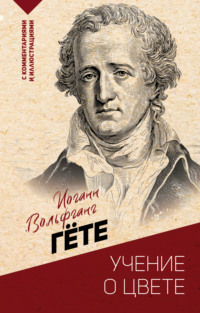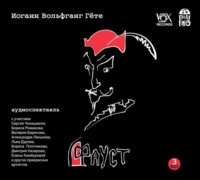 полная версия
полная версияWilhelm Meister's Apprenticeship and Travels, Vol. I (of 2)
While they were loading, and getting all things ready, Melina said, "I am sorry we should travel like mountebanks and rope-dancers. I could wish that Mignon would put on girl's clothes, and that the harper would let his beard be shorn." Mignon clung firmly to Wilhelm, and cried, with great vivacity, "I am a boy – I will be no girl!" The old man held his peace; and Philina, on this suggestion, made some merry observations on the singularity of their protector, the count. "If the harper should cut off his beard," said she, "let him sew it carefully upon a ribbon, and keep it by him, that he may put it on again whenever his lordship the count falls in with him in any quarter of the world. It was this beard alone that procured him the favor of his lordship."
On being pressed to give an explanation of this singular speech, Philina said to them, "The count thinks it contributes very much to the completeness of theatrical illusion if the actor continues to play his part, and to sustain his character, even in common life. It was for this reason that he showed such favor to the Pedant: and he judged it, in like manner, very fitting that the harper not only wore his false beard at nights on the stage, but also constantly by day; and he used to be delighted at the natural appearance of the mask."
While the rest were laughing at this error, and the other strange opinions of the count, the harper led our friend aside, took leave of him, and begged, with tears, that he would even now let him go. Wilhelm spoke to him, declaring that he would protect him against all the world; that no one should touch a hair of his head, much less send him off against his will.
The old man seemed affected deeply: an unwonted fire was glowing in his eyes. "It is not that," cried he, "which drives me away. I have long been reproaching myself in secret for staying with you. I ought to linger nowhere; for misfortune flies to overtake me, and injures all that are connected with me. Dread every thing, unless you dismiss me; but ask me no questions. I belong not to myself. I cannot stay."
"To whom dost thou belong? Who can exert such a power on thee?"
"Leave me my horrid secret, and let me go! The vengeance which pursues me is not of the earthly judge. I belong to an inexorable destiny. I cannot stay, and I dare not."
"In the situation I see thee in, I shall certainly not let thee go."
"It were high treason against you, my benefactor, if I should delay. I am secure while with you, but you are in peril. You know not whom you keep beside you. I am guilty, but more wretched than guilty. My presence scares happiness away, and good deeds grow powerless when I become concerned in them. Fugitive, unresting I should be, that my evil genius might not seize me, which pursues but at a distance, and only appears when I have found a place, and am laying down my head to seek repose. More grateful I cannot show myself than by forsaking you."
"Strange man! Thou canst neither take away the confidence I place in thee, nor the hope I feel to see thee happy. I wish not to penetrate the secrets of thy superstition; but if thou livest in belief of wonderful forebodings, and entanglements of fate, then, to cheer and hearten thee, I say, unite thyself to my good fortune, and let us see which genius is the stronger, thy dark or my bright one."
Wilhelm seized this opportunity of suggesting to him many other comfortable things; for of late our friend had begun to imagine that this singular attendant of his must be a man, who, by chance or destiny, had been led into some weighty crime, the remembrance of which he was ever bearing on his conscience.
A few days ago Wilhelm, listening to his singing, had observed attentively the following lines: —
"For him the light of ruddy mornBut paints the horizon red with flame;And voices, from the depths of nature borne,Woe! woe! upon his guilty head proclaim."But, let the old man urge what arguments he pleased, our friend had constantly a stronger argument at hand. He turned every thing on its fairest side; spoke so bravely, heartily, and cheerily, that even the old man seemed again to gather spirits, and to throw aside his whims.
CHAPTER II
Melina was in hopes to get established, with his company, in a small but thriving town at some distance. They had already reached the place where the count's horses were to turn, and now they looked about for other carriages and cattle to transport them onward. Melina had engaged to provide them a conveyance: he showed himself but niggardly, according to his custom. Wilhelm, on the contrary, had the shining ducats of the countess in his pocket, and thought he had the fullest right to spend them merrily; forgetting very soon how ostentatiously he had produced them in the stately balance transmitted to his father.
His friend Shakspeare, whom with the greatest joy he acknowledged as his godfather, and rejoiced the more that his name was Wilhelm, had introduced him to a prince, who frolicked for a time among mean, nay, vicious companions, and who, notwithstanding his nobleness of nature, found pleasure in the rudeness, indecency, and coarse intemperance of these altogether sensual knaves. This ideal likeness, which he figured as the type and the excuse of his own actual condition, was most welcome to our friend; and the process of self-deception, to which already he displayed an almost invincible tendency, was thereby very much facilitated.
He now began to think about his dress. It struck him that a waistcoat, over which, in case of need, one could throw a little short mantle, was a very fit thing for a traveller. Long knit pantaloons, and a pair of lacing-boots, seemed the true garb of a pedestrian. He next procured a fine silk sash, which he tied about him, under the pretence at first of securing warmth for his person. On the other hand, he freed his neck from the tyranny of stocks, and got a few stripes of muslin sewed upon his shirt; making the pieces of considerable breadth, so that they presented the complete appearance of an ancient ruff. The beautiful silk neckerchief, the memorial of Mariana, which had once been saved from burning, now lay slackly tied beneath this muslin collar. A round hat, with a party-colored band, and a large feather, perfected the mask.
The women all asserted that this garb became him very well. Philina in particular appeared enchanted with it. She solicited his hair for herself, – beautiful locks, which, the closer to approach the natural ideal, he had unmercifully clipped. By so doing she recommended herself not amiss to his favor; and our friend, who by his open-handedness had acquired the right of treating his companions somewhat in Prince Harry's manner, erelong fell into the humor of himself contriving a few wild tricks, and presiding in the execution of them. The people fenced, they danced, they devised all kinds of sports, and, in their gayety of heart, partook of what tolerable wine they could fall in with in copious proportions; while, amid the disorder of this tumultuous life, Philina lay in wait for the coy hero, – over whom let his better genius keep watch!
One chief diversion, which yielded the company a frequent and very pleasing entertainment, consisted in producing an extempore play, in which their late benefactors and patrons were mimicked, and turned into ridicule. Some of our actors had seized very neatly whatever was peculiar in the outward manner of several distinguished people in the count's establishment; their imitation of these was received by the rest of the party with the greatest approbation: and when Philina produced, from the secret archives of her experience, certain peculiar declarations of love that had been made to her, the audience were like to die with laughing and malicious joy.
Wilhelm censured their ingratitude; but they told him in reply that these gentry well deserved what they were getting, their general conduct toward such deserving people, a sour friends believed themselves, not having been by any means the best imaginable. The little consideration, the neglect they had experienced, were now described with many aggravations. The jesting, bantering, and mimicry proceeded as before: our party were growing bitterer and more unjust every minute.
"I wish," observed Wilhelm, "there were no envy or selfishness lurking under what you say, but that you would regard those persons and their station in the proper point of view. It is a peculiar thing to be placed, by one's very birth, in an elevated situation in society. The man for whom inherited wealth has secured a perfect freedom of existence; who finds himself from his youth upwards abundantly encompassed with all the secondary essentials, so to speak, of human life, – will generally become accustomed to consider these qualifications as the first and greatest of all; while the worth of that mode of human life, which nature from her own stores equips and furnishes, will strike him much more faintly. The behavior of noblemen to their inferiors, and likewise to each other, is regulated by external preferences. They give each credit for his title, his rank, his clothes, and equipage; but his individual merits come not into play."
This speech was honored with the company's unbounded applause. They declared it to be shameful, that men of merit should constantly be pushed into the background; and that, in the great world, there should not be a trace of natural and hearty intercourse. On this latter point particularly they overshot all bounds.
"Blame them not for it," said Wilhelm, "rather pity them! They have seldom an exalted feeling of that happiness which we admit to be the highest that can flow from the inward abundance of nature. Only to us poor creatures is it granted to enjoy the happiness of friendship in its richest fulness. Those dear to us we cannot elevate by our countenance, or advance by our favor, or make happy by our presents. We have nothing but ourselves. This whole self we must give away; and, if it is to be of any value, we must make our friend secure of it forever. What an enjoyment, what a happiness, for giver and receiver! With what blessedness does truth of affection invest our situation! It gives to the transitory life of man a heavenly certainty: it forms the crown and capital of all that we possess."
While he spoke thus, Mignon had come near him: she threw her little arms round him, and stood with her cheek resting on his breast. He laid his hand on the child's head, and proceeded, "It is easy for a great man to win our minds to him, easy to make our hearts his own. A mild and pleasant manner, a manner only not inhuman, will of itself do wonders, – and how many means does he possess of holding fast the affections he has once conquered? To us, all this occurs less frequently; to us it is all more difficult; and we naturally, therefore, put a greater value on whatever, in the way of mutual kindness, we acquire and accomplish. What touching examples of faithful servants giving themselves up to danger and death for their masters? How finely has Shakspeare painted out such things to us! Fidelity, in this case, is the effort of a noble soul, struggling to become equal with one exalted above it. By steadfast attachment and love, the servant is made equal to his lord, who, but for this, is justified in looking on him as a hired slave. Yes, these virtues belong to the lower class of men alone: that class cannot do without them, and with them it has a beauty of its own. Whoever is enabled to requite all favors easily will likewise easily be tempted to raise himself above the habit of acknowledgment. Nay, in this sense, I am of opinion it might almost be maintained, that a great man may possess friends, but cannot be one."
Mignon clung more and more closely to him.
"It may be so," replied one of the party: "we do not need their friendship, and do not ask it. But it were well if they understood a little more about the arts, which they affect to patronize. When we played in the best style, there was none to mind us: it was all sheer partiality. Any one they chose to favor, pleased; and they did not choose to favor those that merited to please. It was intolerable to observe how often silliness and mere stupidity attracted notice and applause."
"When I abate from this," said Wilhelm, "what seemed to spring from irony and malice, I think we may nearly say, that one fares in art as he does in love. And, after all, how shall a fashionable man of the world, with his dissipated habits, attain that intimate presence with a special object, which an artist must long continue in, if he would produce any thing approaching to perfection, – a state of feeling without which it is impossible for any one to take such an interest, as the artist hopes and wishes, in his work?
"Believe me, my friends, it is with talents as with virtue; one must love them for their own sake, or entirely renounce them. And neither of them is acknowledged and rewarded, except when their possessor can practise them unseen, like a dangerous secret."
"Meanwhile, until some proper judge discovers us, we may all die of hunger," cried a fellow in the corner.
"Not quite inevitably," answered Wilhelm. "I have observed, that, so long as one stirs and lives, one always finds food and raiment, though they be not of the richest sort. And why should we repine? Were we not, altogether unexpectedly, and when our prospects were the very worst, taken kindly by the hand, and substantially entertained? And now, when we are in want of nothing, does it once occur to us to attempt any thing for our improvement, or to strive, though never so faintly, towards advancement in our art? We are busied about indifferent matters; and, like school-boys, we are casting all aside that might bring our lesson to our thoughts."
"In sad truth," said Philina, "it is even so! Let us choose a play: we will go through it on the spot. Each of us must do his best, as if he stood before the largest audience."
They did not long deliberate: a play was fixed on. It was one of those which at that time were meeting great applause in Germany, and have now passed away. Some of the party whistled a symphony; each speedily bethought him of his part; they commenced, and acted the entire play with the greatest attention, and really well beyond expectation. Mutual applauses circulated: our friends had seldom been so pleasantly diverted.
On finishing, they all felt exceedingly contented, partly on account of their time being spent so well, partly because each of them experienced some degree of satisfaction with his own performance. Wilhelm expressed himself copiously in their praise: the conversation grew cheerful and merry.
"You would see," cried our friend, "what advances we should make, if we continued this sort of training, and ceased to confine our attention to mere learning by heart, rehearsing and playing mechanically, as if it were a barren duty, or some handicraft employment. How different a character do our musical professors merit! What interest they take in their art! how correct are they in the practisings they undertake in common! What pains they are at in tuning their instruments; how exactly they observe time; how delicately they express the strength and the weakness of their tones! No one there thinks of gaining credit to himself by a loud accompaniment of the solo of another. Each tries to play in the spirit of the composer, each to express well whatever is committed to him, be it much or little.
"Should not we, too, go as strictly and as ingeniously to work, seeing we practise an art far more delicate than that of music, – seeing we are called on to express the commonest and the strangest emotions of human nature, with elegance, and so as to delight? Can any thing be more shocking than to slur over our rehearsal, and in our acting to depend on good luck, or the capricious choice of the moment? We ought to place our highest happiness and satisfaction in mutually desiring to gain each other's approbation: we should even value the applauses of the public only in so far as we have previously sanctioned them among ourselves. Why is the master of the band more secure about his music than the manager about his play? Because, in the orchestra, each individual would feel ashamed of his mistakes, which offend the outward ear; but how seldom have I found an actor disposed to acknowledge or feel ashamed of mistakes, pardonable or the contrary, by which the inward ear is so outrageously offended! I could wish, for my part, that our theatre were as narrow as the wire of a rope-dancer, that so no inept fellow might dare to venture on it, instead of being, as it is, a place where every one discovers in himself capacity enough to flourish and parade."
The company gave this apostrophe a kind reception; each being convinced that the censure conveyed in it could not apply to him, after acting a little while ago so excellently with the rest. On the other hand, it was agreed, that during this journey, and for the future if they remained together, they would regularly proceed with their training in the manner just adopted. Only it was thought, that, as this was a thing of good humor and free will, no formal manager must be allowed to have a hand in it. Taking it for an established fact, that, among good men, the republican form of government is the best, they declared that the post of manager should go round among them: he must be chosen by universal suffrage, and every time have a sort of little senate joined in authority along with him. So delighted did they feel with this idea, that they longed to put it instantly in practice.
"I have no objection," said Melina, "if you incline making such an experiment while we are travelling: I shall willingly suspend my own directorship until we reach some settled place." He was in hopes of saving cash by this arrangement, and of casting many small expenses on the shoulders of the little senate or of the interim manager. This fixed, they went very earnestly to counsel how the form of the new commonwealth might best be adjusted.
"'Tis an itinerating kingdom," said Laertes: "we shall at least have no quarrels about frontiers."
They directly proceeded to the business, and elected Wilhelm as their first manager. The senate also was appointed, the women having seat and vote in it: laws were propounded, were rejected, were agreed to. In such playing, the time passed on unnoticed; and, as our friends had spent it pleasantly, they also conceived that they had really been effecting something useful, and, by their new constitution, had been opening a new prospect for the stage of their native country.
CHAPTER III
Seeing the company so favorably disposed, Wilhelm now hoped he might further have it in his power to converse with them on the poetic merit of the plays which might come before them. "It is not enough," said he next day, when they were all again assembled, "for the actor merely to glance over a dramatic work, to judge of it by his first impression, and thus, without investigation, to declare his satisfaction or dissatisfaction with it. Such things may be allowed in a spectator, whose purpose it is rather to be entertained and moved than formally to criticise. But the actor, on the other hand, should be prepared to give a reason for his praise or censure; and how shall he do this, if he have not taught himself to penetrate the sense, the views, and feelings of his author? A common error is, to form a judgment of a drama from a single part in it, and to look upon this part itself in an isolated point of view, not in its connection with the whole. I have noticed this within a few days, so clearly in my own conduct, that I will give you the account as an example, if you please to hear me patiently.
"You all know Shakspeare's incomparable 'Hamlet:' our public reading of it at the castle yielded every one of us the greatest satisfaction. On that occasion we proposed to act the play; and I, not knowing what I undertook, engaged to play the prince's part. This I conceived that I was studying, while I began to get by heart the strongest passages, the soliloquies, and those scenes in which force of soul, vehemence and elevation of feeling, have the freest scope; where the agitated heart is allowed to display itself with touching expressiveness.
"I further conceived that I was penetrating quite into the spirit of the character, while I endeavored, as it were, to take upon myself the load of deep melancholy under which my prototype was laboring, and in this humor to pursue him through the strange labyrinths of his caprices and his singularities. Thus learning, thus practising, I doubted not but I should by and by become one person with my hero.
"But, the farther I advanced, the more difficult did it become for me to form any image of the whole, in its general bearings; till at last it seemed as if impossible. I next went through the entire piece, without interruption; but here, too, I found much that I could not away with. At one time the characters, at another time the manner of displaying them, seemed inconsistent; and I almost despaired of finding any general tint, in which I might present my whole part with all its shadings and variations. In such devious paths I toiled, and wandered long in vain; till at length a hope arose that I might reach my aim in quite a new way.
"I set about investigating every trace of Hamlet's character, as it had shown itself before his father's death: I endeavored to distinguish what in it was independent of this mournful event, independent of the terrible events that followed; and what most probably the young man would have been, had no such thing occurred.
"Soft, and from a noble stem, this royal flower had sprung up under the immediate influences of majesty: the idea of moral rectitude with that of princely elevation, the feeling of the good and dignified with the consciousness of high birth, had in him been unfolded simultaneously. He was a prince, by birth a prince; and he wished to reign, only that good men might be good without obstruction. Pleasing in form, polished by nature, courteous from the heart, he was meant to be the pattern of youth and the joy of the world.
"Without any prominent passion, his love for Ophelia was a still presentiment of sweet wants. His zeal in knightly accomplishments was not entirely his own: it needed to be quickened and inflamed by praise bestowed on others for excelling in them. Pure in sentiment, he knew the honorable-minded, and could prize the rest which an upright spirit tastes on the bosom of a friend. To a certain degree, he had learned to discern and value the good and the beautiful in arts and sciences; the mean, the vulgar, was offensive to him; and, if hatred could take root in his tender soul, it was only so far as to make him properly despise the false and changeful insects of a court, and play with them in easy scorn. He was calm in his temper, artless in his conduct, neither pleased with idleness, nor too violently eager for employment. The routine of a university he seemed to continue when at court. He possessed more mirth of humor than of heart: he was a good companion, pliant, courteous, discreet, and able to forget and forgive an injury, yet never able to unite himself with those who overstepped the limits of the right, the good, and the becoming.
"When we read the piece again, you shall judge whether I am yet on the proper track. I hope at least to bring forward passages that shall support my opinion in its main points."
This delineation was received with warm approval; the company imagined they foresaw that Hamlet's manner of proceeding might now be very satisfactorily explained; they applauded this method of penetrating into the spirit of a writer. Each of them proposed to himself to take up some piece, and study it on these principles, and so unfold the author's meaning.
CHAPTER IV
Our friends had to continue in the place for a day or two, and it was not long ere sundry of them got engaged in adventures of a rather pleasant kind. Laertes in particular was challenged by a lady of the neighborhood, a person of some property; but he received her blandishments with extreme, nay, unhandsome, coldness, and had in consequence to undergo a multitude of jibes from Philina. She took this opportunity of detailing to our friend the hapless love-story which had made the youth so bitter a foe to womankind. "Who can take it ill of him," she cried, "that he hates a sex which has played him so foul, and given him to swallow, in one stoutly concentrated potion, all the miseries that man can fear from woman? Do but conceive it: within four and twenty hours, he was lover, bridegroom, husband, cuckold, patient, and widower! I wot not how you could use a man worse."









